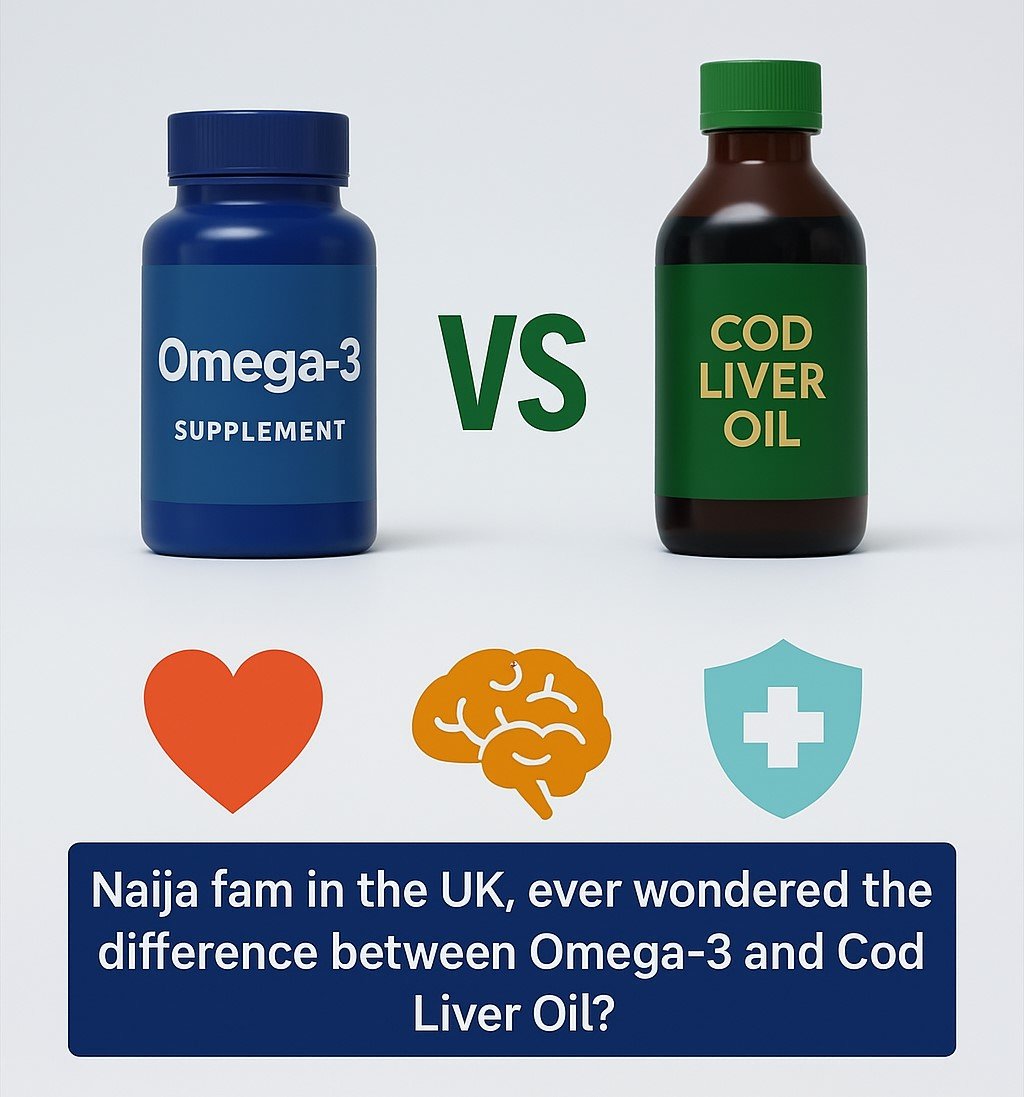If you’re looking to boost your omega-3 intake, you’ve probably come across fish oil and cod liver oil as common supplements. But which one is better for you? In this guide, we’ll compare the two, discuss their benefits, and explain why fish oil might be the better option.
Fish Oil or Cod Liver Oil?
Omega-3 fatty acids have been celebrated for their heart health benefits, and their reputation has been well-earned. However, while both fish oil and cod liver oil are sources of omega-3, there are key differences between them. Cod liver oil is technically a type of fish oil but has a different nutritional profile that may not be as beneficial for those primarily seeking omega-3s.
So, which should you choose? If you’re aiming to increase your omega-3 intake, fish oil is generally the better option.
What Actually is Omega-3?
Omega-3 is a group of essential polyunsaturated fatty acids that play a crucial role in cardiovascular health, as well as supporting your immune system, mood, and memory. There are three main types of omega-3 fatty acids:
- Alpha-linolenic acid (ALA): This is a plant-based omega-3 found in sources like walnuts and flaxseeds. Your body can convert ALA into EPA and DHA, but the process is slow, and you don’t produce all you need.
- Eicosapentaenoic acid (EPA): Found in fatty fish, EPA plays a key role in reducing inflammation and supporting heart health.
- Docosahexaenoic acid (DHA): DHA is vital for brain health, vision, and overall well-being. It’s especially important during pregnancy and infancy for brain and eye development.
Omega-3s help reduce inflammation, which is one of the leading causes of heart disease, and they offer various other health benefits as well.
What Does Omega-3 Do?
While more research is needed, omega-3s are believed to provide several health benefits:
- Reduces cholesterol: Omega-3s can lower triglyceride levels in the blood, reducing the risk of heart disease.
- Anti-inflammatory: Omega-3s may help reduce inflammation, which is linked to cardiovascular diseases, depression, and autoimmune diseases like rheumatoid arthritis.
- Boosts the immune system: Omega-3s support immune function, helping the body fight infections and diseases.
- Supports eye health: Omega-3s are important for maintaining healthy vision, though more research is needed to fully understand their effects.
Remember, omega-3 supplements are most effective as part of a balanced, healthy diet.
How Much Omega-3 Do You Need?
Experts recommend getting 450-500mg of EPA and DHA combined per day. This can be achieved by consuming fatty fish twice a week, such as:
- Salmon
- Mackerel
- Sardines
- Herring
- Trout
- Anchovies
If you’re not a fan of fish, you can also boost your omega-3 intake with plant-based sources like walnuts, flaxseeds, and rapeseed oil.
For those who struggle to get enough omega-3s from food, supplements can be a good alternative—but it’s important to choose the right one.
Omega-3 vs Cod Liver Oil: Key Differences
When it comes to omega-3 supplements, fish oil is often the preferred choice. Fish oil comes from the tissues of fatty fish like mackerel and tuna, which are rich in omega-3. On the other hand, cod liver oil comes from the liver of cod, which has a different nutritional profile.
Here’s why fish oil might be a better option:
- More Omega-3s: Cod liver oil contains less omega-3 than fish oil because it comes from cod, a white fish, rather than a fatty fish.
- Higher in Vitamin A: Cod liver oil contains high levels of vitamin A, which can be harmful if consumed in excess. Too much vitamin A can cause toxicity, particularly for pregnant or breastfeeding women.
- Fish oil is a safer bet: Because cod liver oil can lead to excessive vitamin A intake, many health organizations, including the NHS, recommend avoiding it in favor of fish oil for omega-3 supplementation.
Key Takeaways
While both fish oil and cod liver oil contain omega-3s, fish oil is the better choice due to its higher concentration of omega-3 fatty acids and lower vitamin A content. Omega-3s are essential for heart health, reducing inflammation, improving cholesterol levels, and supporting vision and immune function. Whether you get your omega-3 from fish or supplements, it’s important to ensure you’re getting the right amount.
FAQs
What is Omega-3? Omega-3 is a group of essential fatty acids that promote heart health, reduce inflammation, and support brain and eye function.
What does Omega-3 do? Omega-3 helps reduce cholesterol, boosts the immune system, supports eye health, and reduces inflammation in the body.
How much Omega-3 do I need? You should aim for about 450-500mg of omega-3s daily, or about 140g of fatty fish each week.
What’s wrong with cod liver oil? Cod liver oil is lower in omega-3s compared to other fish oils, and it contains high levels of vitamin A, which can cause toxicity if consumed in excess.
If you’re looking to improve your health with omega-3s, consider fish oil as your go-to supplement for a healthier heart, brain, and overall well-being!
#NaijaUKConnect #UKVisaJobs #CareJobsUK #NaijaToUK #NigeriansInUK #HealthCareVisa
Join Our WhatsApp Channel
Stay updated on the latest UK news, including education, health, job openings, and more for those living in the UK!
Join here: Naija UK Channel
Also, follow us on our social media channels for the latest updates and discussions:
- Twitter: @NaijaUKConnect
- Facebook: Naija UK Connect
- Instagram: @naijaukconnect




